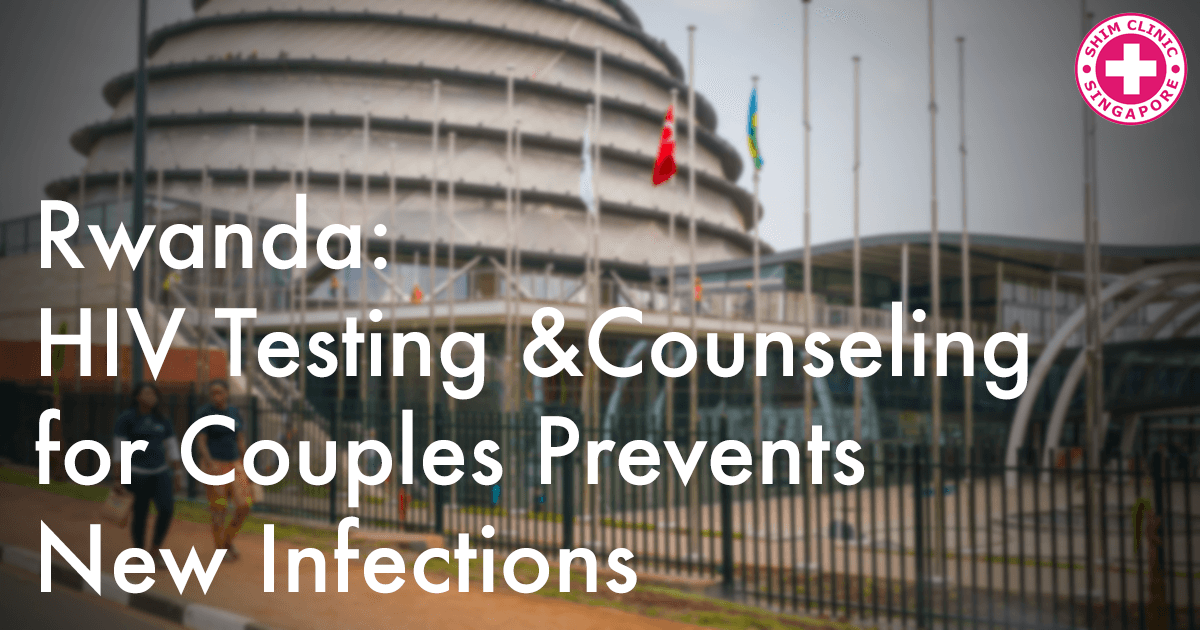Rwanda, the first nation to implement Couples’ Voluntary HIV Counseling and Testing (CVCT) in Africa has been able to prevent more than 70% of new HIV infections. The country has done so by implementing the HIV prevention and research campaign over a period of 30 years.
For the Eastern African country, it took the initiative so seriously that it was implemented as a nationwide intervention and social norm to help reduce HIV infections occurring among cohabiting couples. Reports show that of the new HIV infections in the country, 90% of them are found in cohabiting couples.
What is Couples’ Voluntary HIV Counseling and Testing all About?
CVCT that is run through the Rwanda Ministry of Health in conjunction with Emory University and the Centers for Disease Control and Prevention (CDC) encourages couples to go for HIV testing together. Moreover, the initiative provides the opportunity for the partners to share the test results with each other as well as address issues such as HIV transmission and family planning together.
CVCT also provides support to couples in the event that one or both of them are infected with the virus. For the initiative to be effective and efficient in nationwide implementation, training and technical assistance were contributing factors where the Centers for Disease Control and Prevention, U.S which has an office in Rwanda, helped fund the 2 components.
WHO Endorsed HIV Transmission Prevention Intervention
The initiative has proven to be successful such that the World Health Organization endorsed it as an intervention for prevention of HIV transmission among couples of heterosexual nature. Even with such an endorsement, very few African nations have received and implemented CVCT as an intervention.
This is despite the fact that as from 2012, out of the more than 35 million adults and children living with HIV all over the world, 70% of them are from Sub-Saharan Africa with new infections more common in heterosexuals. Rwanda has stood out amongst other African countries to be the first to implement the initiative with about 90% of married men and women in the country going for HIV testing as couples.
The country has been able to achieve through research, collaboration among the academia, government and international organizations and overcoming challenges such as war and poverty. Additionally, the country’s small size, dense population, good communication and transport systems as well as a single language, that is, French all contributed to the rapid implementation of the initiative.
Can other Countries Implement the Initiative?
Zambia has tried implementing CVCT but the success levels are not near Rwanda’s. Even with support from international development agencies from U.K and Canada as well as endorsements from the Zambian government, larger surface area, multiple languages, inadequate knowledge and lack of openness regarding HIV test results among cohabiting couples are all factors that have derailed implementation of the initiative in Zambia.
A professor at the Emory University recommends that CVCT should also be implemented in other Sub-Saharan countries. For this to be effective, national targets and deadlines, indicators and budgets must be taken into consideration.
In addition, governments as well as continental and international funding agencies should be at the forefront of putting efforts towards implementation of CVCT. This will help prevent new HIV infections, save more lives and change public health practice among the affected countries.
However, those that seek to implement CVCT should be patient as it took Rwanda 30 years for them to be where they are regarding HIV prevention among cohabiting couples of heterogeneous nature.
In a modern country like Singapore, it would seem like such an initiative should be quick to implement, but we still have to consider that social stigma, embarrassment, lack of knowledge and other social factors may still come into play, preventing such an initiative from rolling out. Also, policy makers may not deem the risk of infection in Singapore high enough to justify such measures. In the meantime though, it is the personal responsibility of each individual Singaporean to use protection when engaging in casual sex or high-risk sexual activities, go for frequent STD testing at a STD clinic in Singapore. Singaporeans also need to be educated that a HIV infection can still be prevented through HIV PEP treatment if exposure is not more than the window period of 72 hours.

